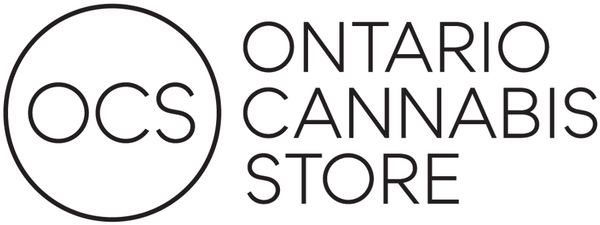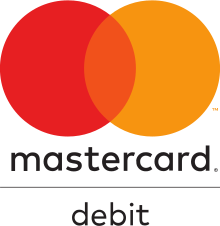Cannabis Made Clear
How to Talk to Youth About Cannabis
As a trusted adult, it’s hard to know how to engage in meaningful conversations about cannabis with the young people in your life. These strategies can help you open the lines of communication.

Cannabis is legal for adult use in Canada. Next to alcohol and tobacco, cannabis is the substance most commonly used by Canadian youth. Despite this, curious youth still face a critical lack of access to open and balanced conversations about cannabis. A strong, open relationship with a parent, a caregiver or another trusted adult who can speak frankly about cannabis is an important factor in guiding youth to make informed and safe choices.
These kinds of talks are not the easiest to have with young people. But the sooner they happen, the better — while it’s never too late to have the conversation, research shows that discussions are more likely to be helpful if they start before a young person tries cannabis for the first time (which happens most commonly at 14 years of age, according to Canadian epidemiological trends). With early and ongoing discussions, younger teens are also less likely to experiment with drugs and other substances.
It’s not about giving one big formal talk about cannabis; regular communication is key to keeping youth safer and healthier. Casual, honest and frequent conversations about cannabis provide critical education. Here’s how to have those conversations effectively.
Tips for speaking to youth about cannabis
-
Start early. Dialogue about cannabis is more effective when it starts earlier.
-
Talk frequently and openly. With children and young teens, you can take a more casual approach; instead of formal face-to-face talks, you can casually broach the topic as it comes up. For instance, if there is drug use on a TV show you’re watching together, use it as an opportunity to have a conversation.
-
Provide balanced information. Fear-based messaging will not resonate with youth. Ensure that the information you provide is meaningful and rooted in fact, not emotion.
-
Be aware of bias. You might need to put aside your own negative views of cannabis or bias toward it. Even if you don’t have personal biases, be aware of how stigma around drug use can often overlap with racism and marginalization. Stigma can act as a barrier, and youth may shut down if they feel judged. The key is to remain open while you listen.
-
Engage in two-way conversations. Ask open-ended questions without judgment, and don’t discount their experiences. Be respectful of their thoughts, feelings and opinions.
- Be their library. Point them toward the growing body of evidence showing risk factors for youth, as well as harm reduction strategies. Young people have a right to accurate and non-judgmental health information; teaching them how to find credible, evidence-backed information can help them develop critical-thinking skills.
Tips for responding to their cannabis use
Avoid the temptation to bombard the youth in your life with information and advice. Instead, make sure you’re fostering a two-way conversation and respectfully listen to their points of view, even if you disagree.
If they’ve already been consuming cannabis for a while, talk to them about ways to reduce risk, such as avoiding high-potency THC cultivars and formats (like extracts), choosing safer methods of consumption (such as ingestion rather than smoking) and steering clear of synthetic cannabis (commonly called “K2” or “spice”).
If you sense their cannabis use has progressed beyond experimentation (learn more about cannabis consumption and cannabis use disorder), it’s important to remain calm. Ask them to be honest about their use, and be ready to listen respectfully to what they have to say. Searching their room or phone, or rifling through their personal items can erode trust.
Sometimes youth may appear to be or report using cannabis to self-medicate; this may indicate that they’re experiencing a medical or mental health issue. Talk to them about seeing a counsellor or health care practitioner — someone open to having non-judgmental conversations around cannabis use.
Young people want to become more independent, which can make having a talk about cannabis even harder. Having open and honest relationships with the youth in your life — ones that include consistent and judgment-free conversations — will increase the chances that they’ll make safer, better-informed decisions. If you find yourself stuck and don’t know where to start, try reaching out to a school counsellor or your family doctor for advice and resources.
Back to Cannabis Made Clear Back to Cannabis and Youth
This content has been assessed for accuracy by unpaid scientific reviewers and subject matter experts.
Learn more about our reviewers and resources.
Sources
The Guiding Principles of Education
Get Sensible
Cannabis Use and Youth: A parent’s guide
Canadian Institute for Substance Use Research
Trends in cannabis use over time among Canadian youth: 2004–2014
Preventative Medicine
How to Talk with Your Teen about Drugs — Communication Tips for Parents
Health Canada
Sensible Cannabis Education: A Toolkit for Educating Youth
Canadian Students for Sensible Drug Policy
Canada’s Lower-Risk Cannabis Use Guidelines (LRCUG)
CAMH
Cannabis: What Parents/Guardians and Caregivers Need to Know
CAMH
The Well-Being of Ontario Students: Findings from the 2021 Ontario Student Drug Use and Health Survey
CAMH







